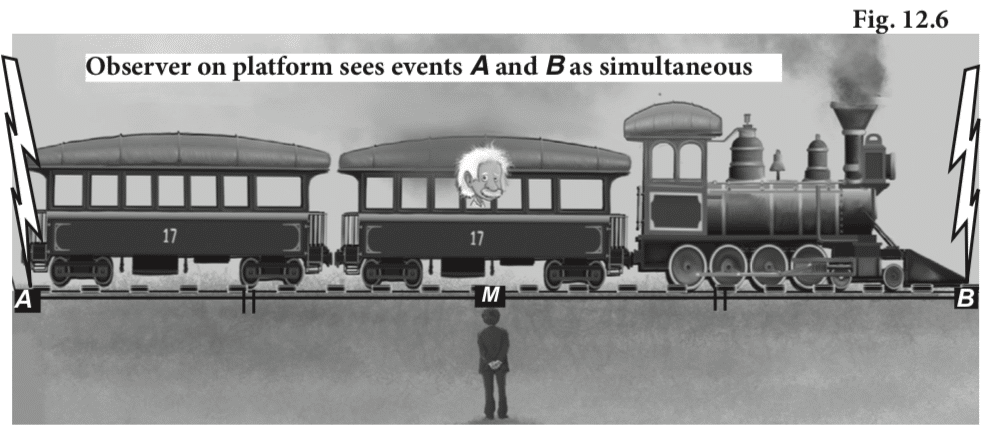
Einstein’s greatest contribution to science came from his strong intuition and his willingness to challenge what was tacitly assumed by science. When Einstein arrived on the scientific scene, it was believed that time was absolute and that everyone in any frame of reference would measure time in the same way.
In 1887, the experimental physicist Michelson, measured the speed of light in the direction of the earth’s movement through space and in the perpendicular direction. When it was found that the speed was the same in both directions, he felt that his experiment was flawed. However, Einstein, using his thought (gedeken) experiments, imagined that the measurement of time might be different in systems moving relative to one another. Based on the assumption that the speed of light would be measured to be the same in all frames of reference, he then applied mathematical logic (some of which was already done by physicist Hendrik Lorentz) to determine the equations that would relate the measure of time in systems moving relative to one another. (These equations are called the Lorentz transformations.) From these transformations he was able to use the logic implicit in mathematics to deduce relationships like E = mc^2.
In developing his General Theory of Relativity, Einstein, once again, drew on his intuition, and used a thought experiment imagining a person inside a closed elevator experiencing gravity as indistinguishable from acceleration. In both cases, Einstein began with his intuition and then followed with the mathematics to test whether his intuition was valid. Yet Einstein was not certain that his theories were true until they were verified by experiment. It took a couple of decades for the scientific community to accept Special Relativity, and incorporate it into the mainstream of accepted scientific fact. During this period of gradual acceptance, Einstein had been preoccupied with his search for a theory that would unify gravitational and electromagnetic forces. He was oblivious to the fact that experimental verification of his Special Theory had become commonplace among Ph.D. students. Reporting on Einstein’s attendance in 1934 at a Princeton seminar, Professor A. E. Condon wrote:
A graduate student was reporting on researches of this kind and Einstein was in the audience. Einstein…grinned like a small boy and kept saying over and over, “Ist das wirklich so?” (Is it really true?) as more and more specific evidence of his E = mc^2 relation was being presented.
Mathematics is an indispensable tool for investigation because it contains an intrinsic logic. However, it’s conclusions are only as valid as the axioms or assumptions on which it is based. In the sciences, we need intuition and instinct to set out valid assumptions before we do the math. That was Einstein’s genius.
